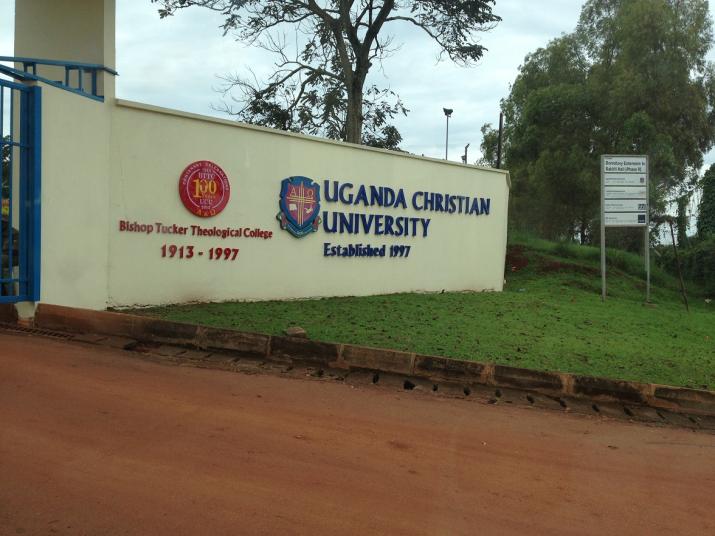
Madame Tendiwensi brought up the fact that many of the schools in Uganda have a religious background. This is one of those schools, which I have had the opportunity to visit.
Published September 15, 2014, last updated on October 5, 2017 under Voices of DGHI
By Tony Fuller
(Week 4- September 7 –13, 2014)
“What do you believe in?”
“Nothing. I am not religious.”
“What do you mean? So, what do you believe in?”
“I’m not sure if there’s a name for it here in Uganda but I have no religion.”
“So, who are you? Do you worship the devil?”
A pastor, one of Madame Tendiwensi's friends, had come over to the house and struck up a conversation with me about my religious beliefs. This was not the first time the topic had been brought up, but for me was the first time I was able to gain insight into the deeper belief system of those around me.
After the initial shock of the comment wore off I was able to respond to his question with, “No no, I am just not religious.” Having not provided him with a sufficient answer the pastor stood up out of his chair, with a disgusted look on his face, and walked out of the room. Being non-religious for a long time now, I have had many conversations about religion with friends, classmates, and family. Sometimes I would get a similar response with the person leaving the conversation, as the pastor did; however, this time it struck a chord with me. Something was different in his reaction. I could sense that the concept of being non-religious just didn’t make sense to him at all, rather than the usual disagreement I would get from others. Feeling trapped within my language and lack of knowledge of how to explain this foreign concept, I was helpless in my ability to at least clear up part of the misperception that I worshipped the devil.
Luckily for me instead of that pastor walking away with that belief of me, Madame Tendiwensi offered for him to stay for dinner. During dinner we then were able to address this concept, but rather than try to use my own words to explain Madame Tendiwensi spoke. A majority, likely 98%, of her conversation was meant to provide me further insight into the beliefs of the people of Uganda. She began with a history of the religious beliefs in the country, and then spoke about the current religious make-up. As she spoke I not only learned about some of the history of Uganda, but my mind was opened further in order to understand the reaction that the pastor had. It was clear from her discussion that she felt strongly that for Ugandans the idea that one doesn’t believe in something, be it Christianity, Islam, Buddha, whatever fundamentally isn’t a concept. Without this concept anyone who says they don’t believe therefore must believe in the devil or something like that. “It’s just that black and white,” Madame Tendiwensi said to me as the pastor nodded.
Unexpectedly, the conversation shifted to an explanation of why Europeans, Americans and people like me do not believe in religion. Having been a philosophy major that focused on the philosophy of religion, I had encountered many discussions and arguments about why people don’t believe. As I listened carefully the pastor and Madame Tendiwensi brought up an idea that made me pause. Never had I heard someone talk about being non-religious like that before and I began to think deeply. Essentially what they said was that in all of the places where there are people who are non-religious currently, prior generations believed deeply in religion. Therefore, that past belief has allowed future generations to be blessed and come to a point where they feel they no longer need religion as everything is already provided for them. She discussed what religion does for the people of Uganda and why people pray, such as for the basic necessities of life and happiness. Since these other places already have the necessity either they believe in religion for the “real” reason that belief is for eternal life, or they become non-religious.
While this discussion didn’t change my stance of being non-religious, it did give me things to think about as I sat up late that night. My naivety in such a simple discussion had opened up the possibility to gain this clearer view of what it means to be a Ugandan. Learning and gaining insight into the world outside of the US is one of my motivations for traveling. Sitting through that discussion that night, even though I felt uncomfortable at being called a worshipper of the devil, provided me with a sense of fulfillment that I was accomplishing part of why I came to Uganda: To Learn.


